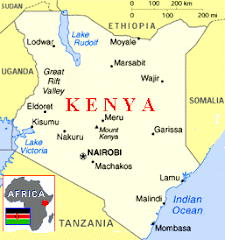 A cheerful little statistic on marriage from New Zealand: the number of marriages among residents rose last year by 400 -- from 21,500 in 2007 to 21,900 -- and these were all first marriages, which make up around one third of Kiwi marriages overall. We don’t know the ages of the happy couples, but a recent article in the Washington Post -- Say Yes. What Are You Waiting For? -- was an unexpected plug for earlier marriages.
A cheerful little statistic on marriage from New Zealand: the number of marriages among residents rose last year by 400 -- from 21,500 in 2007 to 21,900 -- and these were all first marriages, which make up around one third of Kiwi marriages overall. We don’t know the ages of the happy couples, but a recent article in the Washington Post -- Say Yes. What Are You Waiting For? -- was an unexpected plug for earlier marriages.
Sociologist Mark Regnerus politely prods one of the sacred cows of population experts, most of whom fall into the zero population growth camp. Regnerus doesn’t go into the anti-natalist roots of the campaign against early marriage, although they certainly bear investigation; rather, he argues on biological, emotional and economic grounds for the benefits of early marriage.
Biologically, it works for women. The longer they delay marriage and family formation the more their “market value” declines; meanwhile, men’s marriageability increases as they accrue more money and maturity. Regnerus got a lot of flak for that comparison (though he was citing another source) in the 296 comments his article generated, but the truth behind it is pretty obvious.
Emotionally -- and this is the most interesting part of his article -- it works for both spouses. Contrary to what some statistics about divorce suggest (and they need careful analysis) “marriages that begin at age 20, 21 or 22 are not nearly so likely to end in divorce as many presume.” And increasing age alone does not make people more mature and ready for marital challenges:
“Marriage actually works best as a formative institution, not an institution you enter once you think you're fully formed. We learn marriage, just as we learn language, and to the teachable, some lessons just come easier earlier in life.”
Economically, marriage remains a Good Thing, if for no other reason than the effect of pooling resources:
“Married people earn more, save more and build more wealth compared with people who are single or cohabiting. (Say what you will about the benefits of cohabitation, it's a categorically less stable arrangement, far more prone to division than marriage.) We can combine incomes while reducing expenses such as food, child care, electricity, gas and water usage. Marriage may be bourgeois, but it's also the greenest of all social structures. Michigan State ecologists estimate that the extra households created by divorce cost the nation 73 billion kilowatt hours of electricity and more than 600 billion gallons of water in a year. That's a mighty big carbon footprint created in the name of solitude. Marriage may not make you rich -- that's not its purpose -- but a biblical proverb reveals this nifty side effect: ‘Two are better than one, because they have a good return for their work.’”
Read the whole article -- it’s well worthwhile. There are two others with it --one from a journalist who married at 25 (so young!) and one from fellow sociologist Andrew Cherlin, who doesn’t like Regnerus’ argument much and seems happy with his own “market” argument for delayed marriage and small families: “Children are costly to educate and contribute little to the family economy.” ~ Washington Post, Apr 26, 27
Posted by: Carolyn Moynihan




No comments:
Post a Comment